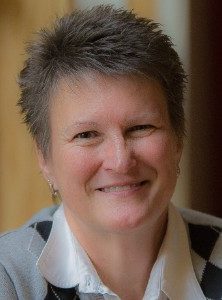Since Nov. 5, I’ve been thinking a lot about what is left for progressives after this nation has clearly shown its preferences for white supremacy, patriarchy, ignorance and hate. People have asked me where we’re supposed to find hope as we watch the clown car of government leadership fill with incompetence, bigotry and danger.
I’ll admit, it took me a few days. I spent Nov. 6 looking at properties in Crete, lovely little villas in olive groves with a view of the Mediterranean. I knew it was escapist fantasy, but it felt better than thinking about the Gilead we are entering.

Susan Shaw
Then I began to remember the long line of people seeking justice who spent their lives fighting for a world they never lived to see — Sojourner Truth, Susan B. Anthony, Martin Luther King Jr., Harvey Milk.
I realized what’s left to us in the rubble of our dreams of inclusion, equity and justice is resistance. We do not have to go along with whatever comes our way from Washington or state governments.
But we have to be brave. Resistance can carry a high price tag. Dietrich Bonhoeffer died in a concentration camp. MLK and Harvey Milk were assassinated. People who resist may lose their jobs, be arrested, get trolled and doxxed. Family and friends may cut off ties. Resistance is not easy.
But, for me, resistance is hope. It is not the futility of being captured by Star Trek’s Borg. We do not have to be assimilated into the coming wave of discrimination, hatred, falsehoods, lies and violence that will be enshrined in law, public policy and government practice as if we have no power. We have the power to resist and the power to refuse.
I think of Jesus’ mandate that when someone strikes us we turn the other cheek. That’s not a display of weakness. It’s an action of defiance. Without returning violence for violence, we hold our heads up and refuse to resort to the unethical and violent tactics being used against us.
What might our resistance look like in the coming regime?
It certainly will mean continuing to use the tools of democracy to slow the rising tide of fascism. We will need to use the courts at every turn to try to stop laws that target transgender people or impinge on bodily autonomy or restrict our reading and freedom of speech. Most of us aren’t lawyers, and so we can’t do that personally, but we can donate to the organizations that can like Baptist Joint Committee, the ACLU, the NAACP, the Human Rights Campaign, NARAL, and many others.
We may need to break unjust laws, driving people across state lines to access reproductive care, saying banned words in the classroom, providing gender-affirming care.
We certainly will need to speak out, especially to those closest to us, convincing our families and friends not to go along with this regime’s negation of the very humanity of our neighbors.
We will need to listen to science, not propagandists and conspiracy theorists and liars, be they Donald Trump or Robert F. Kennedy Jr. or Tulsi Gabbard.
“My hope is no longer that I will see a just America in my lifetime.”
We will have to show up to protest, write letters, make phone calls and knock on doors.
We will have to speak up for others. We all should get bystander training so we know how to intervene when we witness someone harming someone else.
We must resist locally and nationally, personally and politically.
My hope is no longer that I will see a just America in my lifetime. I certainly no longer expect to see a Democratic woman president. I don’t even expect to see so-called moderate Republicans get a backbone and refuse to participate in what they know is extremist and dangerous.
My hope is that I can resist and that my resistances, small though they may be, can be part of something larger that lets us weather the next four years and be part of the long arc of justice that moves us toward a beloved community, even though it is one I likely never will see.
What I can do is do the right thing, do the loving thing, do the just thing in my circumstances in each moment. I can resist. I can refuse. I can play my small part. That is my hope.
Susan M. Shaw is professor of women, gender and sexuality studies at Oregon State University in Corvallis, Ore. She also is an ordained Baptist minister and holds master’s and doctoral degrees from Southern Baptist Theological Seminary. Her most recent book is Intersectional Theology: An Introductory Guide, co-authored with Grace Ji-Sun Kim.
Related articles:
Did Trump voters know what they were getting? Pew surveys say yes
Shared struggles: Kamala Harris and women in ministry | Opinion by Stacy Dandridge
Justice is always coming | Opinion by Darrell Hamilton


